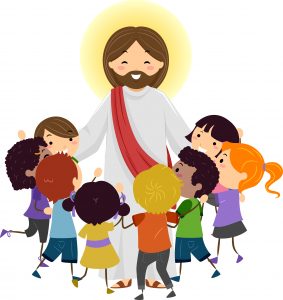 We learn as we grow. As children and young adults, we learn daily lessons at school each day. This helps our mind to develop, and for us to start thinking freely. As adults, we learn to apply those lessons to life. It is the same with Religious Education: as children we learn the lesson, and as adults we learn to relate it to life. This is why Religious Education will always be a building block in life and in learning.
We learn as we grow. As children and young adults, we learn daily lessons at school each day. This helps our mind to develop, and for us to start thinking freely. As adults, we learn to apply those lessons to life. It is the same with Religious Education: as children we learn the lesson, and as adults we learn to relate it to life. This is why Religious Education will always be a building block in life and in learning.
Why, as a parent, do you send your child to Religious Education? If your first answer is so they can receive their First Communion and be Confirmed in the church, then you are only half right. As Catholic’s, Communion and Confirmation is a rite of passage to becoming an adult in the church. However, it should not be the only reason as to why you sign your child up for Religious Education.
Traditional subjects in school teach you language, reading, math, science, art and history. When you put these subjects together, you have the core of Religious Education. Stories from the past, life lessons, analyzing problems and passages that often read like poetry; this helps to exercise your brain in a way most never think about.
Religious Education is not something that can be drilled in your head either. It forces young students and adults to think and analyze problems. You read verses and passages from the Bible (New and Old Testament) to think about what it is they are trying to teach you. These problems are similar to those of word problems in math class, or poems in language arts. You have to apply what you know, and figure out the rest of the equation. If you allow yourself to think like this, chances are you will excel in both the classroom and in life.
Religious Education also allows students think independently, and to not always think the same way as their peers. This is where a lot of times in  school a student is seen as excelling, or just being average. In a world of followers, isn’t it better to have you child be a leader? Many parents would agree that they want their child to stand out in a positive way.
school a student is seen as excelling, or just being average. In a world of followers, isn’t it better to have you child be a leader? Many parents would agree that they want their child to stand out in a positive way.
If attending a Catholic university, and having to take Religious Education courses there, partaking in Religious Education classes previously often helps. Many students who haven’t will think that it is just about watching The Ten Commandments, when in reality it’s about understanding what the commandments all mean and why we have them.
When the announcement is made for Religious Education classes this Summer/Autumn, will you be thinking twice about signing your child up? Be sure to make up your mind prior to the classes being filled up. It won’t take long.